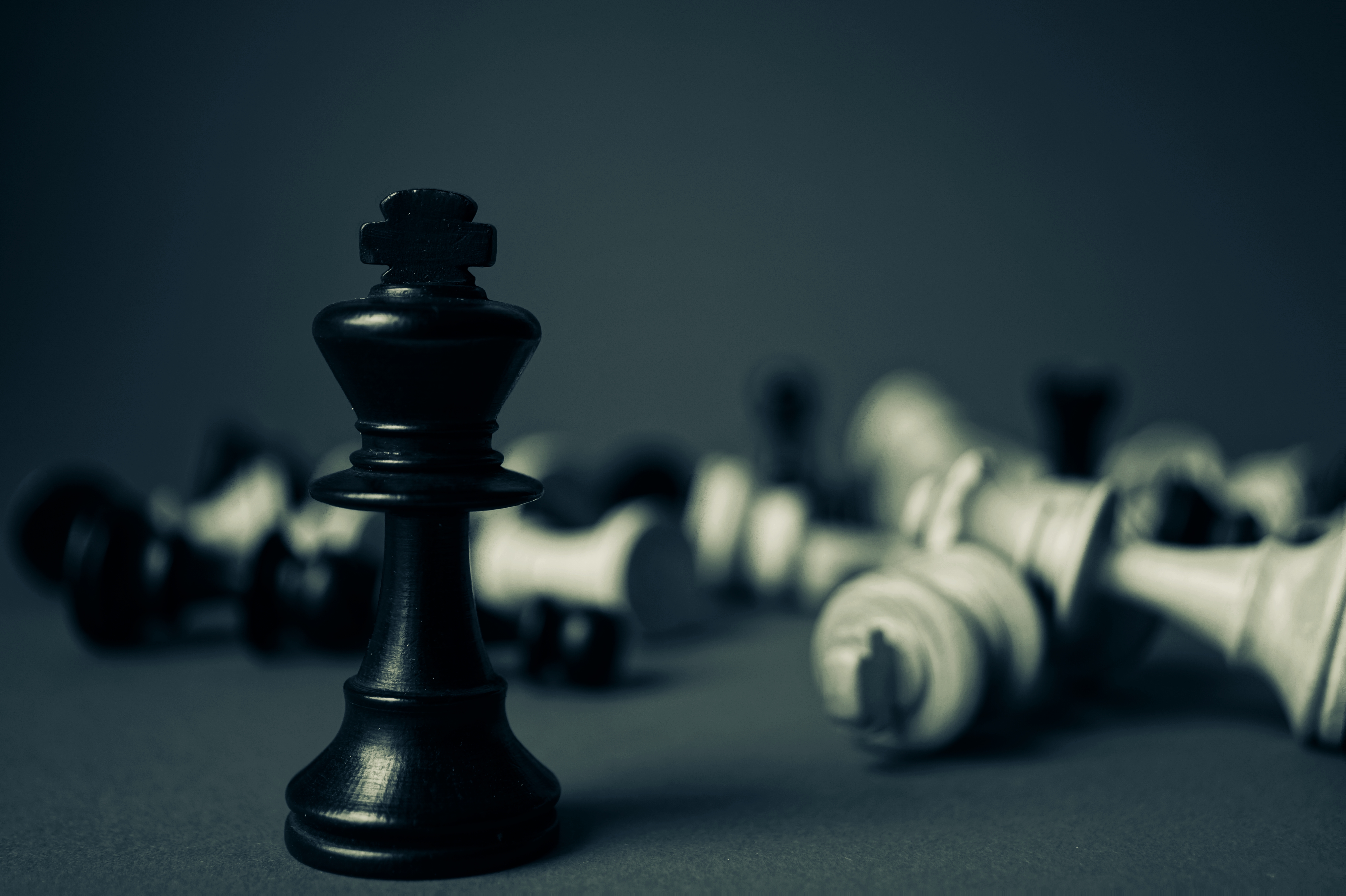Playing to Win

We’ve all been there.
At some time or another, we’ve found ourselves on our back foot in a game merely trying to survive. Our thoughts shifting back and forth trying to fathom the various ways our opponent may be able to cause our untimely demise. We play more conservatively to prevent making any mistakes. However, by focusing on how we might lose, we fail to see our opportunities to win until they have already slipped away, and the game is over. We’ve lost.
Why does this happen?
Why is it that when we try more intently to prevent ourselves from losing that we seem to consign ourselves to that very fate?
Perspective is everything.
You see, trying not to lose isn’t the same as trying to win. Now I know this may sound cliché, but stick with me. In the scenario mentioned in the first paragraph, where was the focus? It was on not losing. It is this perspective that frames the problem which then informs and limits the way we think. Ultimately, it is this lens that sets the priorities for our future actions, which in this case are merely preventative and not proactive. It is this perspective that inhibits our ability to identify windows of opportunity to take the initiative away from our opponent. By simply changing our perspective and reframing the problem, we then gain access to a multitude of solutions which could not be seen before.
Playing to win and playing not to lose are more “…than just descriptive metaphors. They are diametrically opposing strategies, triggered by different psychological and physiological mechanisms. And they have real consequences—especially during competition”1. Viewing an obstacle as either a threat or challenge changes the way in which our brains react and process stimuli. Po Bronson and Ashley Merryman illustrate the concept of a threat situation in their book Top Dog: The Science of Winning and Losing. They discovered through their research that when we are faced with what appears to be a threat situation neural activity in specific areas of our brain increase resulting in slower and more conscious decision making and increased wariness. As a result, our focus shifts to the risks a situation presents. It is this heightened anxiety and magnification of the possible hazards that obstruct our ability to identify routes to victory. Every possible fork in our decision tree which may end in failure or whose risk appears too great is immediately overlooked and discarded for alternatives which won’t lead to defeat; however, these options do not necessarily lead to victory.
A challenge only becomes an obstacle when you bow to it.
Now there is nothing inherently wrong with trying not to lose, but where we go astray is when this becomes our primary goal. We should strive not to be so risk adverse that we never take chances which can result in success; however, we should also not accept any unnecessary risks or fail to calculate how to mitigate potential risks. Bronson and Merryman explain what it means when a player views an obstacle as a challenge:
“In a challenge state, you’re not expected to be perfect, and not expected to win, but you have a fighting chance to rise to the occasion. You’re free to take risks and go for it, which activates the gain-orientation system. A cascade of hormones is released that suppresses l-TPJ activity, and the brain gets comfortable, as if everything is familiar. Decision making shifts back to automatic mode. The hormones dampen the amygdala, making you fearless, and they juice up the reward networks, making you highly attuned to the spoils of victory. Competitors breathe freely, feel energized, and approach opportunities. While top competitors do need to learn to perform in threat situations—because they are sometimes unavoidable—most competitors will perform better in a challenge situation. And in many situations, changing the framing of a task from threat to challenge is all it may take for success.” (pg. 137)
You’ll often hear players say phrases such as “Always play to your outs.” or “You haven’t lost until your life is at zero.” Statements like this, while simple in nature, further echo the concept of facing each obstacle as a challenge to be overcome and shift your focus to develop a plan not to merely stay alive but to emerge victorious. Time and experience will help to make this challenge-oriented mindset take hold subconsciously, but you can begin to improve yourself by choosing to be cognizant of how you approach the problems set before you. You can then identify those moments when you ask yourself “How do I not lose?” which sends your brain on the defensive, so that you can pause and instead ask yourself the better question “What actions must I take in order to win?”.

Practice makes perfect.
One method I recommend to aid in developing this type of mindset is intentional practice. Playing competitive practice games with a friend who will help you in those moments when you need to shift your focus, in order to identify opportunities to seize victory, will help you develop self-awareness. I’ve personally found this to be effective when you have at least three people wherein two people play a match as they would in an actual competition, but a third person serves as a coach to one of the players. This method ensures that aspects of the game such as unknown information are maintained but you can get feedback concerning your thought process and evaluation of the game state. There are a myriad of methodologies and informational sources to help progress your ability to change perspective and overcome the challenge in front of you, and I urge you to try them all out and find what works for you. One such fountain of knowledge that I highly recommend is Reid Duke’s Level One series which serves as master class on Magic: The Gathering.2
I hope this short lesson not only takes your further on your journey to be a better Magic player but also helps in the challenges you face in life. Sometimes a simple shift in perspective is all you need to see the finish line. So remember, don’t merely play not to lose. Play to win!
References:
- Bronson, P., & Merryman, A. (2014). Top dog: The science of winning and losing. New York, NY: Twelve
- Duke, R. (2015). Level one: The complete course [EPUB version]. Retrieved from http://media.wizards.com/2015/downloads/ebooks/Level-One-iBooks.epub
-
-
-
-
/ 0 Comments